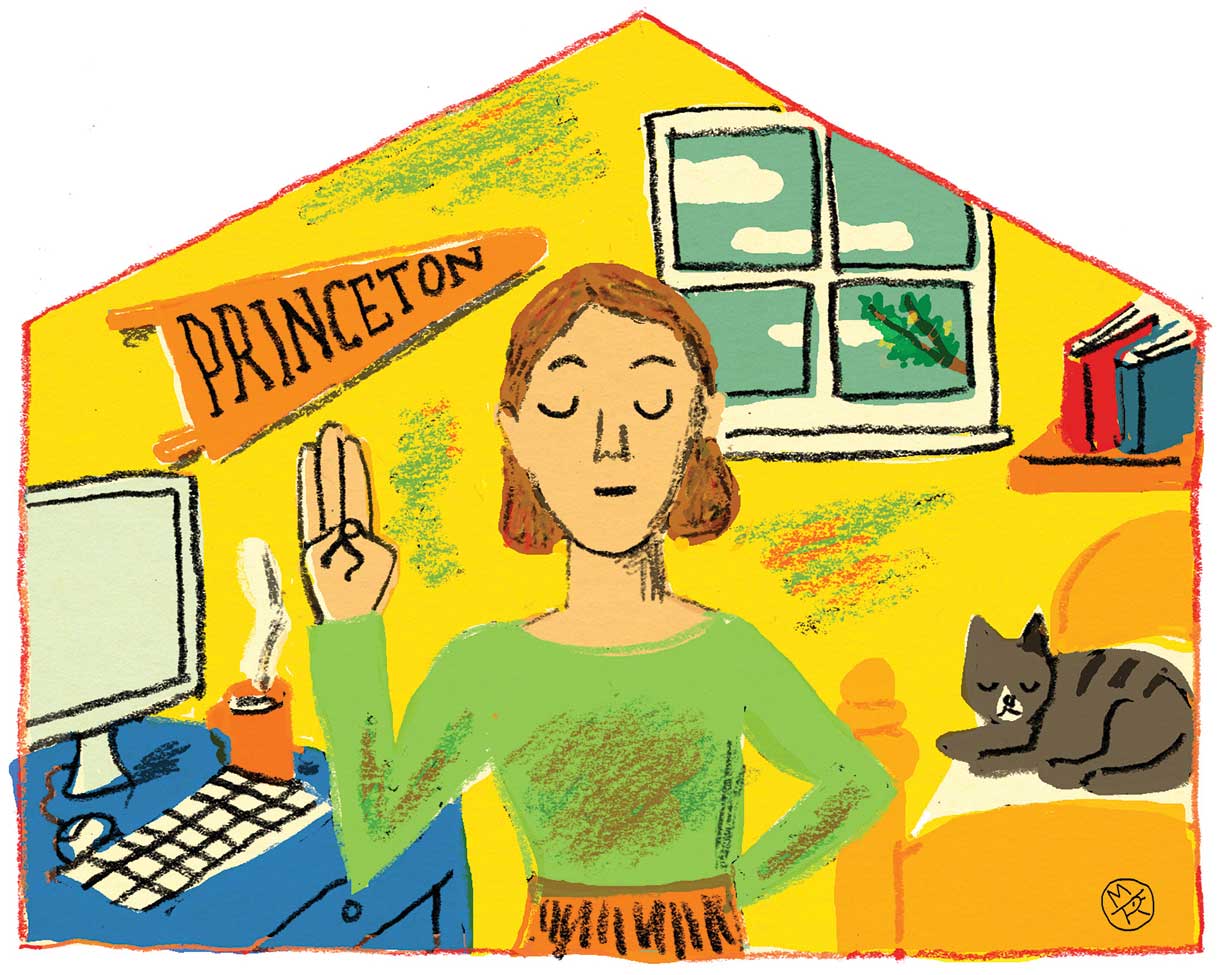In Remote Classes, Princeton Adapts and Reinforces Its Honor Code
One of the many challenges that higher education has faced with the transition to virtual learning is upholding academic integrity. Princeton has had to adapt and reinforce the value of its Honor Code while students work from a distance.
“One thing we are determined to do is translate Princeton’s commitments toward maintaining academic integrity throughout the virtual learning process,” said Dean of the College Jill Dolan. All academic integrity policies remain in effect during virtual learning, she said, and the University has done its best to be clear about this.
In his welcome message to the Class of 2024, President Eisgruber ’83 called academic integrity one of Princeton’s “most important values.” At the start of the fall semester, first-year students completed interactive academic integrity training on Zoom and Canvas, an online classroom management tool, Dolan said. Additionally, juniors completed a refresher module, which included policies on how to properly cite sources.
For faculty and instructors, an education session discussed ways to shift academic instruction online and what it means to assess student learning in the new context, said Rebekah Massengill, an associate dean of the college who focuses on curriculum and assessment. Suggestions for shifting assessments included offering more creative assignments that rely on critical thinking (in which answers can’t easily be copied). To lessen temptation, many professors have made exams open-notes, allowed students to collaborate on problem sets, or opted for papers over traditional tests.
While the hope is that these measures will help deter cheating at Princeton, nationwide some are skeptical whether that is realistic. In a July survey of 789 higher-education instructors by the Wiley Network, 93 percent of respondents said they believe students are more likely to cheat in an online learning environment. There are more opportunities for students to search for answers online, use their notes, and consult one another without the instructor ever knowing.
In the spring, The Daily Princetonian reported on a cheating incident in a linear algebra course, where a teaching assistant intentionally posted incorrect answers online to confirm suspicions that students were looking up solutions on prohibited websites. At least 21 students were reported to the Committee on Discipline, according to the Prince.
Operations research and financial engineering major Sahil Suneja ’23 said he hears and appreciates the concerns of professors but is unsure if they make a difference. High midterm averages in some intro courses, Suneja said, left students wondering “if there was something shady going on.”
Virginia Murphy ’21, a politics major who serves on the University’s Committee on Discipline, said she’s noticed more emphasis on academic integrity, but feels that because students aren’t physically together on campus, the shared responsibility of upholding the Honor Code is diminished. “A lot of the informal ways of preventing or discouraging any violations are not possible really in this environment,” she said.
The environment is challenging for professors as well. Philosophy professor Elizabeth Harman studies ethics and talked to PAW about the two sides that faculty need to balance. “It’s important to hold students accountable for cheating, and it’s important that the University [has] a culture of taking cheating seriously,” Harman said. “At the same time ... we have the pandemic, and that’s one gigantic mitigating circumstance that affects everybody.” She hopes that faculty show compassion in situations that may not be black and white.
Some universities have turned to software to track students during exams. A few professors at Princeton do as well, but most do not. “To engage in that kind of monitoring, I think, would really undercut the values that are at the heart of [the Honor Code’s] shared commitment,” Massengill said.
Mutual respect between the University and students is key. This fall, Camille Moeckel ’20 is studying at Harvard, where some of her classes use monitoring software. “I think the big difference is you don’t necessarily feel trusted,” said Moeckel. “You feel a lot more like a child. At Princeton I felt like every time the professors or preceptors left the room when I had to take an exam, they trusted me to sit down and take the exam to the best of my ability. I think that was more important to me.”










No responses yet